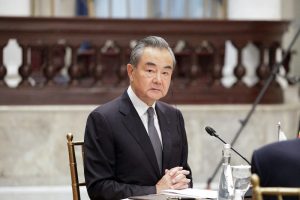The US dollar edged higher on Friday, while investors remained on the sidelines awaiting US jobs data amid concern about a possible recession.
However, the dollar was unable to recoup losses after it slid 0.68% overnight, the largest fall since July 19.
The US dollar index, which measures the greenback against a basket of currencies, was up 0.15% to 105.86.
The key US non-farm payrolls report, which will provide hints of how the US economy is faring, is due at 1230 GMT. Economists expect an increase of 250,000 jobs for the month of July, after 372,000 were added in June.
“Payrolls just clearly seems to be on everyone’s mind for tonight, so I think that’s keeping things relatively subdued,” Ray Attrill, head of FX strategy at National Australia Bank, said.
But signs of softening in the labour market could already be underway, as overnight data showed that the number of Americans filing new claims for unemployment benefits increased last week.
Against the weaker greenback, the euro held steady at around $1.0237, after surging 0.8% overnight. But the euro’s reprieve from recent losses is likely short-lived as concerns about an energy crisis remain.
A stand-off over the return of a turbine that Russia says is holding back gas supplies to Europe showed no sign of being resolved on Thursday, as Moscow said it needed documentation to confirm the equipment was not subject to sanctions.
“We still expect EUR/USD to trade below parity, more than just briefly, over the next few weeks,” Joseph Capurso, international economics head at Commonwealth Bank of Australia, said.
Meanwhile, the British pound dipped 0.14% to $1.21405 and is down about 0.35% for the week, reversing gains made the previous two weeks.
On Thursday, the Bank of England raised its benchmark rate by half a percentage-point to 1.75%, the highest since late 2008, but warned about a long recession ahead in Britain.
Elsewhere, the US dollar rose 0.21% against the Japanese yen to 133.215 per dollar, after tumbling 0.69% overnight.
The risk-sensitive Aussie and kiwi remained little changed at $0.69645 and $0.6290, respectively.
ALSO SEE:
China Buys Record $17.5bn of US Farm Goods in First Half
China’s CATL Seen Sticking to US Plan Despite Pelosi Trip
China’s Temperature Rise Threatens Water, Ecosystems, Crops
























